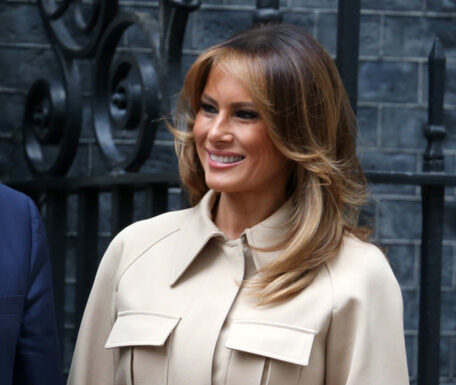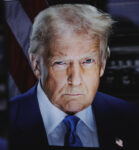Representative Jasmine Crockett from Texas raised questions about First Lady Melania Trump’s immigration status during a House Judiciary Committee hearing on June 25, 2025. The Democratic lawmaker scrutinized the Trump administration’s immigration policies, focusing on the first lady’s route to U.S. residency.
During discussions on reforming visa processes, Crockett accused Republicans of overlooking issues related to the president’s family while endorsing strict immigration measures. She highlighted what she perceived as discrepancies in the application of visa regulations.
Crockett questioned Melania Trump’s acquisition of an EB-1 visa in 2001, often referred to as the “Einstein visa,” designated for those with extraordinary abilities. The Texas representative examined whether Melania Trump, a former model from Slovenia, met the stringent qualifications required for this visa category.
Crockett noted that Melania Trump was a model and clarified she was not at the level of Tyra Banks, Cindy Crawford, or Naomi Campbell, yet she secured an EB-1 visa. She emphasized the demanding nature of this visa category.
The representative outlined the typical requirements for the “Einstein visa,” which include significant achievements such as a Nobel Prize, Pulitzer Prize, Olympic medal, or other notable accomplishments in the sciences, arts, education, business, or athletics. Crockett pointed out that Melania Trump did not hold such accolades at the time of receiving her visa.
Before addressing Melania Trump, Crockett criticized the administration’s immigration policies, describing them as harsh against individuals with legal visas and U.S. citizens. She argued that genuine visa process integrity should not involve monitoring social media or using unmarked vehicles in raids.
Crockett concluded her remarks on the first lady’s visa by stating, “It doesn’t take an Einstein to see that the math ain’t mathin’ here,” a phrase she frequently uses in congressional hearings.
The hearing took an unexpected turn when Alex Nowrasteh from the Cato Institute interjected with humor to defend the first lady. Testifying as a witness, Nowrasteh commented on Melania Trump’s qualifications. “Not everybody could marry Donald Trump, and I think that’s quite an achievement, so I think she deserves credit for that,” he remarked, adding, “Nobody up here could have done it.” Crockett promptly responded.
Crockett replied to Nowrasteh, “You sure are right, I couldn’t do it.” The exchange highlighted the tense atmosphere surrounding discussions of the Trump family’s immigration history.
Melania Trump entered the U.S. in 1996 on a tourist visa, later obtaining work visas as a skilled professional. She was pursuing a modeling career in New York City when she met Donald Trump at a party in 1998, significantly increasing her public visibility. She received her EB-1 visa and legal residency in 2001.
According to State Department data reported by The Washington Post, only five individuals from Slovenia were granted green cards through the EB-1 program in 2001, including Melania Trump. This has led to ongoing scrutiny of her qualifications for the visa.
The EB-1 visa requires evidence of a major award or fulfillment of three out of ten specific criteria demonstrating excellence in a field. These standards include media coverage, original contributions, and exhibitions of work. Before her application, Melania Trump had appeared on magazine covers, including British GQ.
Melania Trump’s immigration lawyer, Michael Wildes, defended her visa history against similar criticisms. In 2018, he asserted that Mrs. Trump legally obtained her green card and qualified for the extraordinary ability designation. Wildes declined further comment to protect the first lady’s privacy.
Crockett’s remarks generated strong reactions on social media, with supporters commending her for highlighting perceived inequities in immigration enforcement, while critics accused her of personal attacks on the first lady. The issue has rekindled broader debates about fairness in high-profile immigration cases.
The hearing took place amid the Trump administration’s ongoing implementation of significant immigration policies, including measures affecting university visa programs and travel bans on several countries. On June 4, President Trump signed an order targeting Harvard University’s student visa program, citing national security concerns about Chinese students. Later in June, the administration announced comprehensive visa and travel restrictions.
The situation highlights the ongoing political tensions over immigration policy and the scrutiny of the Trump family’s own immigration histories. Crockett has emerged as a vocal Democratic critic of the administration’s immigration stance, often challenging Republican colleagues in congressional hearings with questions that attract substantial media attention.








